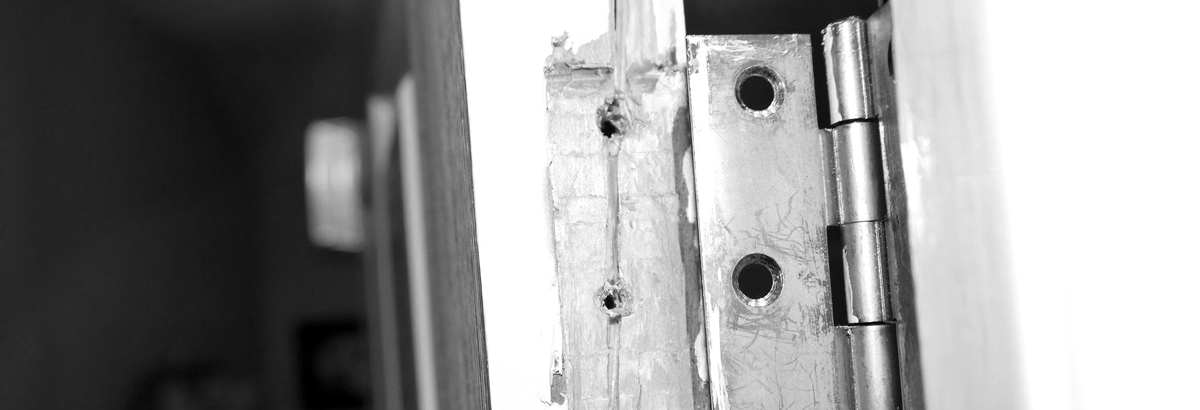I remember when I got my first email address. I was an undergrad at Humboldt State University in my third or fourth year (somewhere around 1993-94) when the administration decided to assign every student, teacher, and staffer their own personal address. I don’t recall being particularly excited by this development; I do remember that I embraced the usefulness of email pretty quickly.
Coming around to accepting the internet in general was harder. If there was a World Wide Web, I didn’t know about it yet, and my brief exposures to technologies like Gopher that were used to remotely search the computers at other universities only made me confused. I didn’t see the point, and I dismissed the idea that I would ever need to use this new technology. I was fortunate that my roommate had a computer that I used for word processing (if I remember correctly, the program was WordStar, and it relied on function keys since this was a pre-mouse PC), but it never occurred to me that I would have a need for one of my own once we went our separate ways after graduation. Even as I got better at using the computer in my job at the Interlibrary Loan department at the HSU library and saw its utility for making it easier to match people with books and articles from other institutions, I had no inkling of what the future held. Stubbornly, even as I moved back to San Diego and got a computer expressly for the purpose of emailing with my long-distance boyfriend who was still at HSU, and signed up for my first commercial internet account (AOL, of course!), I told myself that I had no need for “surfing the web.” What a silly waste of time, I scoffed.
Who’s scoffing now?
Over twenty years past that first email address, I am now a daily and steady consumer of web-based content. I get my news from online sources. I communicate primarily through email at work (and by text with friends). I open my day with a bowl of cereal, a mug of coffee, and Chrome; I read online articles in the company of lunch at work; I skim through my social media accounts while eating dinner at home, or while standing in line at a store, and even right before going to bed. And for a while now, I have come to feel that all this exposure to online content has made my brain feel… clogged. A month or so ago, I started addressing the clog by reducing the amount of time I spend on social media (I only skim through the top few Facebook statuses when I get online now) and I don’t click on every single titillating headline on Feedly, where I aggregate most of my news and information sites. I had developed a severe case of FoMO (Fear of Missing Out, for the uninitiated) and that was contributing to the brain clog. I feel a little more clear now that I have stopped manically scrolling through post after post on FB until I find the last one I saw. I have a little more time to read actual paper books now that I am only clicking on the Feedly articles about real, hard news and mustering up the will to pass up the gossipy soft “news” about celebrities or car wrecks or scandalous-sounding crimes (I have written about the difference between hard and soft news before, only I called it News and news).
I am feeling more at peace with the amount of time I spend reading online content, but I am still uneasy. In particular, I feel that we long ago passed the point of diminishing returns with the internet. As much as there is to praise about the democratizing power of the web and the ability of people from all over the globe (at least, those with internet access, which even in the United States isn’t everybody by a long shot) to access information, there is as dark side to all this instant access. The dark side is the fact that anybody who can access the web can add content to the web.
Why is this bad? The answer should be obvious: people can say and write whatever they want, and they have no burden of proof. There are obviously websites and sources that are more trustworthy than others, but that doesn’t stop people from finding things on websites that are misleading, manipulative, or outright fraudulent and accepting them as true. The internet is the modern version of the snake-oil salesman’s wagon, but instead of traveling from town to town looking for marks, the snake oil peddlers of the internet are never more than a click away. For somebody like me, who values critical thinking, the scientific method, rationality, and skepticism, this aspect of the information age is ominous indeed. The democratizing power of the web has bred a vast and expanding digital library full of truth and fiction, but there is no librarian to make sure all this content is appropriately catalogued. It has become an enormous echo chamber, where we shout what we want and hear it echoed back to us from the sites and articles and social media posts that we already want to believe. No matter how crazy an idea may sound, I can all but guarantee that you can find some source backing it on the web.
None of these ideas should be revelatory, and I expect that everyone reading this has already drawn these conclusions. Still, as I continue emerging from my brain clog and find new ways to cope with the ceaseless internet echoes, I believe these are things worth thinking about. We would all do well to think more carefully about the amount of time we spend online, and certainly to think very carefully about the conclusions we draw from what we read. It’s too easy to believe that the echoes are the only sounds we need to hear.




